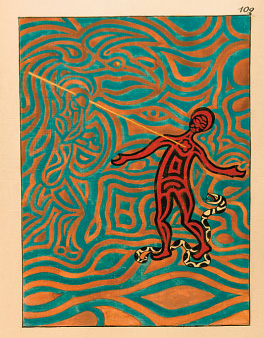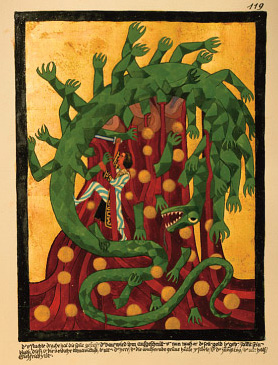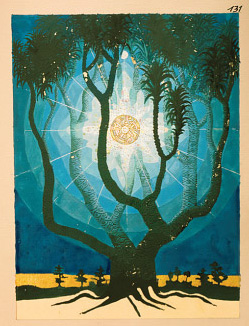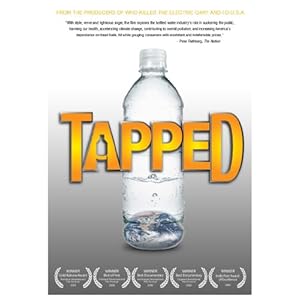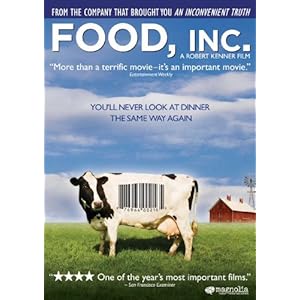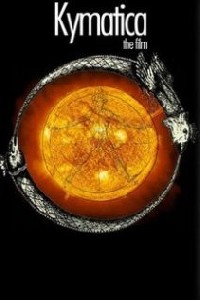
"In spite of all this preaching and this exemplary practice, the disease grows steadily worse. We know that it is unsafe to allow power to be concentrated in the hands of a ruling oligarchy; nevertheless power is in fact being concentrated in fewer and fewer hands. We know that, for most people, life in a huge modern city is anonymous, atomic, less than fully human; nevertheless the huge cities grow steadily huger and the pattern of urban-industrial living remains unchanged. We know that, in a very large and complex society, democracy is almost meaningless except in relation to autonomous groups of manageable size; nevertheless more and more of every nation's affairs are managed by the bureaucrats of Big Government and Big Business. It is only too evident that, in practice, the problem of over-organization is almost as hard to solve as the problem of over-population. In both cases we know what ought to be done; but in neither case have we been able, as yet, to act effectively upon our knowledge.
At this point we find ourselves confronted by a very disquieting question: Do we really wish to act upon our knowledge? Does a majority of the population think it worth while to take a good deal of trouble, in order to halt and, if possible, reverse the current drift toward totalitarian control of everything? In the United States and America is the prophetic image of the rest of the urban-industrial world as it will be a few years from now -- recent public opinion polls have revealed that an actual majority of young people in their teens, the voters of tomorrow, have no faith in democratic institutions, see no objection to the censorship of unpopular ideas, do not believe that government of the people by the people is possible and would be perfectly content, if they can continue to live in the style to which the boom has accustomed them, to be ruled, from above, by an oligarchy of assorted experts. That so many of the well-fed young television-watchers in the world's most powerful democracy should be so completely indifferent to the idea of self-government, so blankly uninterested in freedom of thought and the right to dissent, is distressing, but not too surprising. "Free as a bird," we say, and envy the winged creatures for their power of unrestricted movement in all the three dimensions. But, alas, we forget the dodo. Any bird that has learned how to grub up a good living without being compelled to use its wings will soon renounce the privilege of flight and remain forever grounded.
 Something analogous is true of human beings. If the bread is supplied regularly and copiously three times a day, many of them will be perfectly content to live by bread alone -- or at least by bread and circuses alone. "In the end," says the Grand Inquisitor in Dostoevsky's parable, "in the end they will lay their freedom at our feet and say to us, 'make us your slaves, but feed us.' " And when Alyosha Karamazov asks his brother, the teller of the story, if the Grand Inquisitor is speaking ironically, Ivan answers, "Not a bit of it! He claims it as a merit for himself and his Church that they have vanquished freedom and done so to make men happy." Yes, to make men happy; "for nothing," the Inquisitor insists, "has ever been more insupportable for a man or a human society than freedom." Nothing, except the absence of freedom; for when things go badly, and the rations are reduced, the grounded dodos will clamor again for their wings -- only to renounce them, yet once more, when times grow better and the dodo-farmers become more lenient and generous. The young people who now think so poorly of democracy may grow up to become fighters for freedom. The cry of "Give me television and hamburgers, but don't bother me with the responsibilities of liberty," may give place, under altered circumstances, to the cry of "Give me liberty or give me death." If such a revolution takes place, it will be due in part to the operation of forces over which even the most powerful rulers have very little control, in part to the incompetence of those rulers, their inability to make effective use of the mind-manipulating instruments with which science and technology have supplied, and will go on supplying, the would-be tyrant. Considering how little they knew and how poorly they were equipped, the Grand Inquisitors of earlier times did remarkably well. But their successors, the well-informed, thoroughly scientific dictators of the future will undoubtedly be able to do a great deal better. The Grand Inquisitor reproaches Christ with having called upon men to be free and tells Him that "we have corrected Thy work and founded it upon miracle, mystery and authority." But miracle, mystery and authority are not enough to guarantee the indefinite survival of a dictatorship. In my fable of Brave New World, the dictators had added science to the list and thus were able to enforce their authority by manipulating the bodies of embryos, the reflexes of infants and the minds of children and adults. And, instead of merely talking about miracles and hinting symbolically at mysteries, they were able, by means of drugs, to give their subjects the direct experience of mysteries and miracles -- to transform mere faith into ecstatic knowledge. The older dictators fell because they could never supply their subjects with enough bread, enough circuses, enough miracles and mysteries. Nor did they possess a really effective system of mind-manipulation. In the past, free-thinkers and revolutionaries were often the products of the most piously orthodox education. This is not surprising. The methods employed by orthodox educators were and still are extremely inefficient. Under a scientific dictator education will really work -- with the result that most men and women will grow up to love their servitude and will never dream of revolution. There seems to be no good reason why a thoroughly scientific dictatorship should ever be overthrown.
Something analogous is true of human beings. If the bread is supplied regularly and copiously three times a day, many of them will be perfectly content to live by bread alone -- or at least by bread and circuses alone. "In the end," says the Grand Inquisitor in Dostoevsky's parable, "in the end they will lay their freedom at our feet and say to us, 'make us your slaves, but feed us.' " And when Alyosha Karamazov asks his brother, the teller of the story, if the Grand Inquisitor is speaking ironically, Ivan answers, "Not a bit of it! He claims it as a merit for himself and his Church that they have vanquished freedom and done so to make men happy." Yes, to make men happy; "for nothing," the Inquisitor insists, "has ever been more insupportable for a man or a human society than freedom." Nothing, except the absence of freedom; for when things go badly, and the rations are reduced, the grounded dodos will clamor again for their wings -- only to renounce them, yet once more, when times grow better and the dodo-farmers become more lenient and generous. The young people who now think so poorly of democracy may grow up to become fighters for freedom. The cry of "Give me television and hamburgers, but don't bother me with the responsibilities of liberty," may give place, under altered circumstances, to the cry of "Give me liberty or give me death." If such a revolution takes place, it will be due in part to the operation of forces over which even the most powerful rulers have very little control, in part to the incompetence of those rulers, their inability to make effective use of the mind-manipulating instruments with which science and technology have supplied, and will go on supplying, the would-be tyrant. Considering how little they knew and how poorly they were equipped, the Grand Inquisitors of earlier times did remarkably well. But their successors, the well-informed, thoroughly scientific dictators of the future will undoubtedly be able to do a great deal better. The Grand Inquisitor reproaches Christ with having called upon men to be free and tells Him that "we have corrected Thy work and founded it upon miracle, mystery and authority." But miracle, mystery and authority are not enough to guarantee the indefinite survival of a dictatorship. In my fable of Brave New World, the dictators had added science to the list and thus were able to enforce their authority by manipulating the bodies of embryos, the reflexes of infants and the minds of children and adults. And, instead of merely talking about miracles and hinting symbolically at mysteries, they were able, by means of drugs, to give their subjects the direct experience of mysteries and miracles -- to transform mere faith into ecstatic knowledge. The older dictators fell because they could never supply their subjects with enough bread, enough circuses, enough miracles and mysteries. Nor did they possess a really effective system of mind-manipulation. In the past, free-thinkers and revolutionaries were often the products of the most piously orthodox education. This is not surprising. The methods employed by orthodox educators were and still are extremely inefficient. Under a scientific dictator education will really work -- with the result that most men and women will grow up to love their servitude and will never dream of revolution. There seems to be no good reason why a thoroughly scientific dictatorship should ever be overthrown.
Meanwhile there is still some freedom left in the world. Many young people, it is true, do not seem to value freedom. But some of us still believe that, without freedom, human beings cannot become fully human and that freedom is therefore supremely valuable. Perhaps the forces that now menace freedom are too strong to be resisted for very long. It is still our duty to do whatever we can to resist them."

